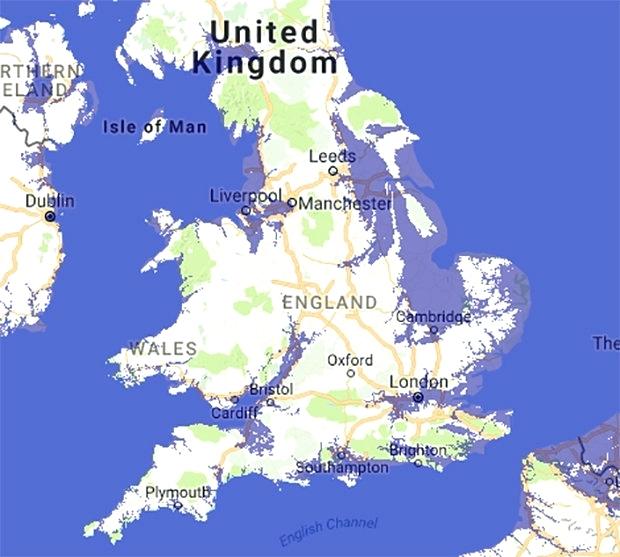
On the last day of October 2014, as trick or treaters took to the streets of the city suburbs for Halloween-themed fun, something genuinely terrifying was in the air.
It wasn’t the fact that Halloween has become, over the last few years, a poster child for the creeping Americanisation of our culture. Nor was it the fact that, just like the manner in which we’ve all apparently just rolled over and accepted that ‘High School Proms’ are now a thing, or that it’s OK for the FA Cup Final to kick off at 5.30pm, that we just don’t seem to have the energy to fight this kind of bullshit anymore.
It wasn’t even that we allow the economic machine to hijack dates on our calendar as merely points at which they can market disposable plastic shite to us.
Nor was it the fact that we not only buy this stuff, but that we then chuck it away — even though we know we’ll be buying the same plastic shite at precisely the same time again next year.
And it wasn’t even that the only thing that differentiates one plastic shite sales opportunity from the next one is how one now ‘naturally’ follows the other in a never-ending cycle, with the end of Halloween simply firing the starting pistol on Christmas, and so on.
I’m struck by the fact, as I sit here in my Levi jeans, and my Adidas trainers, writing this Marxist claptrap on an Apple laptop like the massive liberal hypocrite that I am, that, depressing as it is, none of the above is actually the truly scary thing about Halloween 2014.
No, the truly scary and depressing thing about the evening of the last day of October 2014, on a traditionally cold and rainy island in the Northern hemisphere, was that the temperature was 19 degrees Celsius at 7.30pm. That’s T-shirt weather.
Many people commented about this in online forums such as Twitter and Facebook. As it should have been cold but was actually hot, yeah, many people made jokey, gallows humour comments along the lines of “Global Warming may not be such a bad thing LOL”.
Human beings are, as usual, probably laughing their arses off all the way to oblivion, because if and when Global Warming, or Climate Change as it is also known, does come to bite us on our collective arse, the laughing will surely stop.
The amount of planet’s carbon resources we can safely use is running out, and we’re the only species on earth that is likely to use those remaining resources at an even faster rate in an attempt to stop other sections of the species having access to the rapidly depleting resources. We’d use our last gallon of oil to blow something up, rather than create a shelter. We’re that dumb.
Yes, Climate Change will probably do for us all in the end, and then the planet will heave a sigh of relief. We’ll leave behind, amongst other things, millions and millions of plastic orange buckets with scary faces painted on them.
Now, it’s fair to point out that the process of efficiently digging things out of the ground and then burning them in order to make other things that will then be disposed of and end up being buried in the ground, and all on a massive scale, started right here in Birmingham with the Industrial Revolution. So the problem of Climate Change is sort of our fault. Sorry about that. But that’s not what this entry is about.
What this entry is about is the spark of understanding that might save us all. And that inspiration is also a Brummie thing.
The first realisation of what we we’ve been doing to the planet, and thus the start of a potential change in our collective behaviour, also started right here in this city.
World-renowned palaeoentomologist, Russell Coope (1930-2011), was Professor of Quaternary Science at the University of Birmingham until his retirement in 1993. In the late 1950s, he discovered fossil beetle remains in an organic layer recovered from a quarry, and found that some of the beetles came from warm periods, whilst others came from extremely cold periods. Going against the academic and scientific orthodoxy of the time, Coope proved that occasional changes in climate were extremely abrupt, a theory which was eventually adapted in studies of the Greenland ice cores, from which we learned about the causes and effects of Climate Change.
We gave the world a massive problem, and then we gave it the tools to fix it, if only the world would choose to listen.
